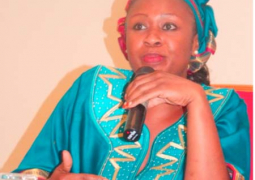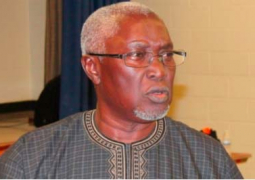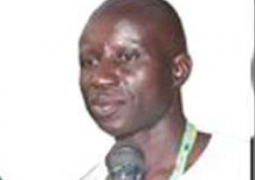The false information case involving former Youth and Sports Permanent Secretary Mambanyick Njie, this week proceeded at the Banjul Magistrates’ Court before acting Principal Magistrate Dawda Jallow.
It continued with the cross-examination of the second prosecution witness, (PW2), Kemo Ceesay, who was recalled for further cross-examination by the defence counsel, AB Gaye.
Continuing his testimony under cross-examination, Kemo Ceesay told the court that he was not aware of any equipment lying down at the Banjul International Airport that was addressed to the GFA.
Counsel then put it to him that the reason why they said equipment were lying down at the airport was because the GFA could not able to pay the customs duty of D500, 000 plus.
However, PW2 insisted that as the former head of finance he was not aware of any equipment at the airport as a result of not paying the customs duty.
Mr. Ceesay admitted that GFA owes NAWEC, but he could not remember the actual figures.
Senior Counsel Gaye then said the GFA owed NAWEC D500, 000 plus, and Ceesay said ‘Yes, that could be possible.
Ceesay also told the court that whenever he travelled with a GFA ticket, the GFA used to pay all his allowances.
Asked whether he travelled in 2011, for which he (Ceesay) received D58, 000 as imprest, Ceesay told the court that he could not remember travelling in 2011.
Counsel then asked him to check his passport, and after checking it was found out that he travelled to Holland in 2011, on vacation.
At that juncture, the defence counsel applied to the court for the passport to be tendered as defence evidence.
The police prosecutor, Sergeant Manga, objected. He told the court that the application of counsel was irrelevant, because the issue of the passport was never before the court.
He added that the matter before the court was about giving false information, and counsel needed to focus his cross-examination on that.
“The passport was personal; it had nothing to do with the case, and so we, therefore, urged the court to dismiss counsel’s application,” the prosecutor submitted.
In response, the defence counsel told the court that the purpose of cross-examination was to test whether the witness was speaking the truth or not.
He added that the court was dealing with a witness, who told the court he never travel to anywhere outside The Gambia in 2011 and now the court happened to find out that he travelled to Holland.
May be more visas had been issued to the witness, so it would be proper for the court to demand his passport for evidence purposes, counsel stated.
Delivering his ruling, the trial magistrate told the court that the offence before the court was giving false information to a public servant.
He added that the passport issue was indeed connected to the case, because they are talking about imprests and other travel allowances, and the passport would help the court to determine the actual number of travels the witness did in 2011.
Therefore, the passport of the witness was hereby tendered in court as evidence, he said.
The case was then adjourned till 2 April 2013, for further hearing.




